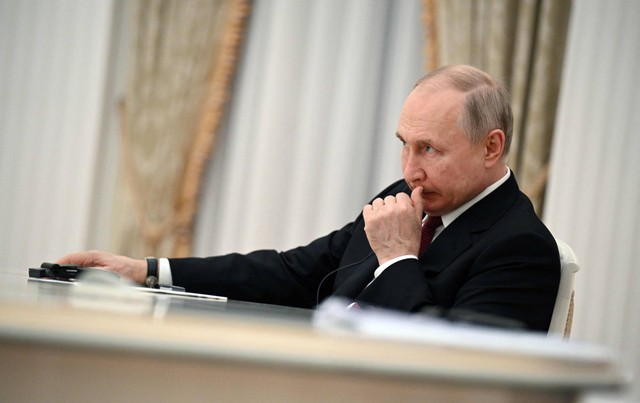Tentang KamiPedoman Media SiberKetentuan & Kebijakan PrivasiPanduan KomunitasPeringkat PenulisCara Menulis di kumparanInformasi Kerja SamaBantuanIklanKarir
2025 © PT Dynamo Media Network
Version 1.101.0
Konten dari Pengguna
Russia beneath Israel-Hamas war: Whitening the fang?
15 Oktober 2023 21:20 WIB
·
waktu baca 3 menitTulisan dari JS Aldi tidak mewakili pandangan dari redaksi kumparan

ADVERTISEMENT
Imagine hearing someone long fully rhetorical and hawkish soaring his voice stating that today's sun would be the last time it rose. Israel Prime Minister Benjamin Netanyahu formally declared war against Hamas on Sunday (8/10), after the surprising attacks on Israelis.
ADVERTISEMENT
He called the Israel Defence Forces (IDF) to strike back by air and calling out 360 thousands reserve forces to prepare for a more massive ground invasion.
The significant escalation of the emergency in the Gaza Strip has, again, spread insecurities across regions where it is also worsening the fear that is felt in Ukraine. As reported by The Guardian (11/10), Ukraine President Volodymyr Zelenskiy said he is worried that international attention will be divided, and much more, turn off from Ukraine.
"If there are other tragedies in the world, there is only a certain amount of military support to share, and Russia hopes that support will be divided," said President Zelenskiy in his visit to NATO Headquarters in Brussels, Belgium. Regardless U.S. Defence Secretary Lloyd Austin's announcement of its novel military aid to Ukraine for $200 million.
ADVERTISEMENT
However, Russia seemed to refuse to lose its tights, President Vladimir Putin brought up a similar sense from what he did in Ukraine by claiming that the Israel-Hamas conflict may affect the energy market.
Putin also criticized the U.S. decision to send an aircraft carrier to the eastern Mediterranean, "of course, such actions make the situation escalate."
Adrianus Harsawaskita, an International Politics Scientist from Parahyangan Catholic University made his opinion, "It is a part of the fundamental essence of a political game that Russia has to make its opinions regarding the conflict. However, Ukraine and Gaza are two different entities for Russia that Ukraine had a prolonged history with Russia."
ADVERTISEMENT
The Israel-Hamas war gave more free roam for Russia to act in Ukraine as the international eyes were shifting through the Middle East. Although there have been assumptions for Russia to beneficially engage in the conflict, the Kremlin poses an 'unexpected' gesture. Recently, Putin called the United Nations Security Council members to open a vote for a humanitarian ceasefire on Monday.
But why?
"Again, it's just a bubbly pep-talk from Russia that they have no significant practical value in the Middle East as they are signified as an invader in Ukraine," says Adrianus on Friday (13/10) in his e-mail.
"It is as strange as it seems to be, that an invader persuades for peace talks. In fact, it is hard to look for a justification from Ukraine (to see Russia as not an invader) of which they go beyond international manners," he continues.
ADVERTISEMENT
Adrianus believes that the international world will also increasingly remember the danger of a first strike in the form of an invasion of another country that has the potential to be uncontrolled and gives the West an opportunity or justification to get involved.
"Internationally, the most felt impact from Gaza is the possibility of oil rising, while Ukraine is much more dangerous because it involves a country that has nuclear weapons. So international attention will not be distracted for long. If Russia continues to carry out atrocities in Ukraine, the eyes of the world will return there again," he closes.

